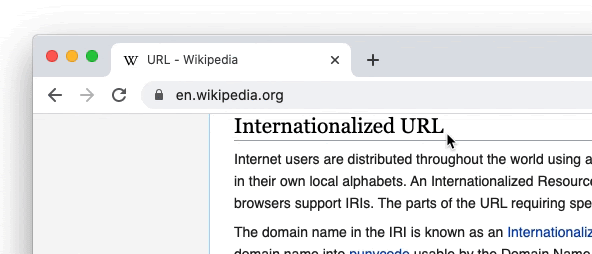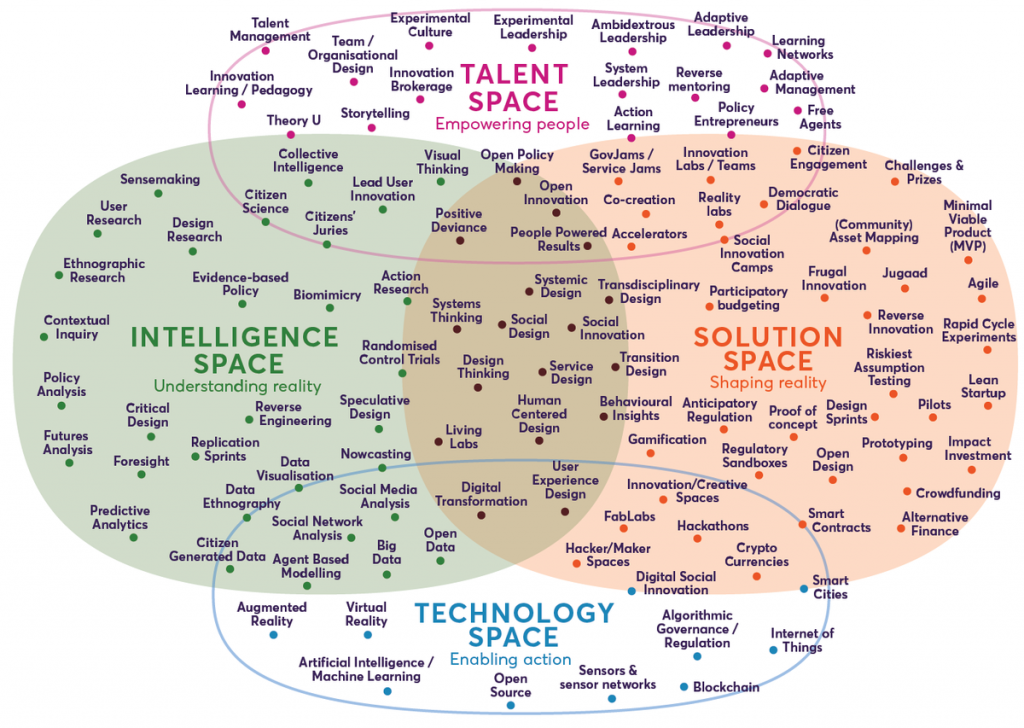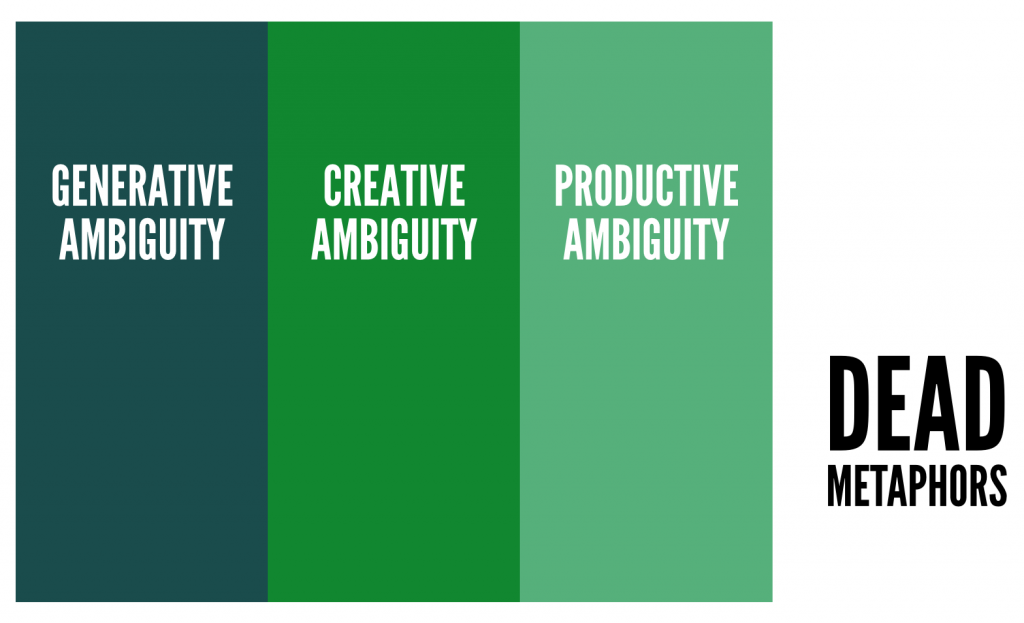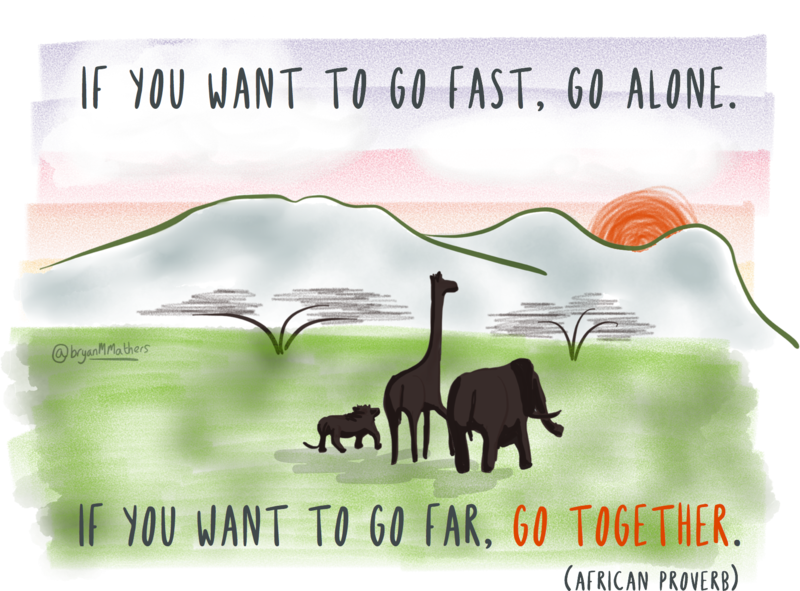- We Have No Reason to Believe 5G Is Safe (Scientific American) — "The latest cellular technology, 5G, will employ millimeter waves for the first time in addition to microwaves that have been in use for older cellular technologies, 2G through 4G. Given limited reach, 5G will require cell antennas every 100 to 200 meters, exposing many people to millimeter wave radiation... [which are] absorbed within a few millimeters of human skin and in the surface layers of the cornea. Short-term exposure can have adverse physiological effects in the peripheral nervous system, the immune system and the cardiovascular system."
- Situated degree pathways (The Ed Techie) — "[T]he Trukese navigator “begins with an objective rather than a plan. He sets off toward the objective and responds to conditions as they arise in an ad hoc fashion. He utilizes information provided by the wind, the waves, the tide and current, the fauna, the stars, the clouds, the sound of the water on the side of the boat, and he steers accordingly.” This is in contrast to the European navigator who plots a course “and he carries out his voyage by relating his every move to that plan. His effort throughout his voyage is directed to remaining ‘on course’."
- on rms / necessary but not sufficient (p1k3) — "To the extent that free software was about wanting the freedom to hack and freely exchange the fruits of your hacking, this hasn’t gone so badly. It could be better, but I remember the 1990s pretty well and I can tell you that much of the stuff trivially at my disposal now would have blown my tiny mind back then. Sometimes I kind of snap to awareness in the middle of installing some package or including some library in a software project and this rush of gratitude comes over me."
- Screen time is good for you—maybe (MIT Technology Review) — "Przybylski admitted there are some drawbacks to his team’s study: demographic effects, like socioeconomics, are tied to psychological well-being, and he said his team is working to differentiate those effects—along with the self-selection bias introduced when kids and their caregivers report their own screen use. He also said he was working to figure out whether a certain type of screen use was more beneficial than others."
- This Map Lets You Plug in Your Address to See How It’s Changed Over the Past 750 Million Years (Smithsonian Magazine) — "Users can input a specific address or more generalized region, such as a state or country, and then choose a date ranging from zero to 750 million years ago. Currently, the map offers 26 timeline options, traveling back from the present to the Cryogenian Period at intervals of 15 to 150 million years."
- Understanding extinction — humanity has destroyed half the life on Earth (CBC) — "One of the most significant ways we've reduced the biomass on the planet is by altering the kind of life our planet supports. One huge decrease and shift was due to the deforestation that's occurred with our increasing reliance on agriculture. Forests represent more living material than fields of wheat or soybeans."
- Honks vs. Quacks: A Long Chat With the Developers of 'Untitled Goose Game' (Vice) — "[L]ike all creative work, this game was made through a series of political decisions. Even if this doesn’t explicitly manifest in the text of the game, there are a bunch of ambient traces of our politics evident throughout it: this is why there are no cops in the game, and why there’s no crown on the postbox."
- What is the Zeroth World, and how can we use it? (Bryan Alexander) — "[T]he idea of a zeroth world is also a critique. The first world idea is inherently self-congratulatory. In response, zeroth sets the first in some shade, causing us to see its flaws and limitations. Like postmodern to modern, or Internet2 to the rest of the internet, it’s a way of helping us move past the status quo."
- It’s not the claim, it’s the frame (Hapgood) — "[A] news-reading strategy where one has to check every fact of a source because the source itself cannot be trusted is neither efficient nor effective. Disinformation is not usually distributed as an entire page of lies.... Even where people fabricate issues, they usually place the lies in a bed of truth."
No more simplified URLs in Chrome
On balance, I’m pleased that this ‘experiment’ is being put to rest. Although I’m for simplifying needlessly-complex aspects of the web, my previous work on web literacy would suggest that there’s a certain amount of knowledge and understanding people need to be able to have to read, write, and participate on the web effectively.

At the time, Google said that the reason for running the experiment was that showing full URLs makes it harder for non-technical users to distinguish between legitimate and malicious (phishing) sites, many of which use complicated and long URLs in attempts to confuse users.Source: Google abandons experiment to show simplified domain URLs in Chrome | The RecordShowing only the domain name was considered a good way to remove the extra chaff from a complex URL and only leave the core domain visible in the URL bar.
If users wanted to view the full link, they could click or hover the Chrome address bar to reveal the rest of the page URL.
However, despite its good intentions, the experiment never sat well, with both security experts and end-users alike, who often complained about it when Google silently enabled it on some browsers to gather usage statistics.
Friday featherings
Behold! The usual link round-up of interesting things I've read in the last week.
Feel free to let me know if anything particularly resonated with you via the comments section below...
Part I - What is a Weird Internet Career?
Weird Internet Careers are the kinds of jobs that are impossible to explain to your parents, people who somehow make a living from the internet, generally involving a changing mix of revenue streams. Weird Internet Career is a term I made up (it had no google results in quotes before I started using it), but once you start noticing them, you’ll see them everywhere.
Gretchen McCulloch (All Things Linguistic)
I love this phrase, which I came across via Dan Hon's newsletter. This is the first in a whole series of posts, which I am yet to explore in its entirety. My aim in life is now to make my career progressively more (internet) weird.
Nearly half of Americans didn’t go outside to recreate in 2018. That has the outdoor industry worried.
While the Outdoor Foundation’s 2019 Outdoor Participation Report showed that while a bit more than half of Americans went outside to play at least once in 2018, nearly half did not go outside for recreation at all. Americans went on 1 billion fewer outdoor outings in 2018 than they did in 2008. The number of adolescents ages 6 to 12 who recreate outdoors has fallen four years in a row, dropping more than 3% since 2007
The number of outings for kids has fallen 15% since 2012. The number of moderate outdoor recreation participants declined, and only 18% of Americans played outside at least once a week.
Jason Blevins (The Colorado Sun)
One of Bruce Willis' lesser-known films is Surrogates (2009). It's a short, pretty average film with a really interesting central premise: most people stay at home and send their surrogates out into the world. Over a decade after the film was released, a combination of things (including virulent viruses, screen-focused leisure time, and safety fears) seem to suggest it might be a predictor of our medium-term future.
I’ll Never Go Back to Life Before GDPR
It’s also telling when you think about what lengths companies have had to go through to make the EU versions of their sites different. Complying with GDPR has not been cheap. Any online business could choose to follow GDPR by default across all regions and for all visitors. It would certainly simplify things. They don’t, though. The amount of money in data collection is too big.
Jill Duffy (OneZero)
This is a strangely-titled article, but a decent explainer on what the web looks and feels like to those outside the EU. The author is spot-on when she talks about how GDPR and the recent California Privacy Law could be applied everywhere, but they're not. Because surveillance capitalism.
You Are Now Remotely Controlled
The belief that privacy is private has left us careening toward a future that we did not choose, because it failed to reckon with the profound distinction between a society that insists upon sovereign individual rights and one that lives by the social relations of the one-way mirror. The lesson is that privacy is public — it is a collective good that is logically and morally inseparable from the values of human autonomy and self-determination upon which privacy depends and without which a democratic society is unimaginable.
Shoshana Zuboff (The New York Times)
I fear that the length of Zuboff's (excellent) book on surveillance capitalism, her use of terms in this article such as 'epistemic inequality, and the subtlety of her arguments, may mean that she's preaching to the choir here.
How to Raise Media-Savvy Kids in the Digital Age
The next time you snap a photo together at the park or a restaurant, try asking your child if it’s all right that you post it to social media. Use the opportunity to talk about who can see that photo and show them your privacy settings. Or if a news story about the algorithms on YouTube comes on television, ask them if they’ve ever been directed to a video they didn’t want to see.
Meghan Herbst (WIRED)
There's some useful advice in this WIRED article, especially that given by my friend Ian O'Byrne. The difficulty I've found is when one of your kids becomes a teenager and companies like Google contact them directly telling them they can have full control of their accounts, should they wish...
Control-F and Building Resilient Information Networks
One reason the best lack conviction, though, is time. They don’t have the time to get to the level of conviction they need, and it’s a knotty problem, because that level of care is precisely what makes their participation in the network beneficial. (In fact, when I ask people who have unintentionally spread misinformation why they did so, the most common answer I hear is that they were either pressed for time, or had a scarcity of attention to give to that moment)
But what if — and hear me out here — what if there was a way for people to quickly check whether linked articles actually supported the points they claimed to? Actually quoted things correctly? Actually provided the context of the original from which they quoted
And what if, by some miracle, that function was shipped with every laptop and tablet, and available in different versions for mobile devices?
This super-feature actually exists already, and it’s called control-f.
Roll the animated GIF!
Mike Caulfield (Hapgood)
I find it incredible, but absolutely believable, that only around 10% of internet users know how to use Ctrl-F to find something within a web page. On mobile, it's just as easy, as there's an option within most (all?) browsers to 'search within page'. I like Mike's work, as not only is it academic, it's incredibly practical.
EdX launches for-credit credentials that stack into bachelor's degrees
The MicroBachelors also mark a continued shift for EdX, which made its name as one of the first MOOC providers, to a wider variety of educational offerings
In 2018, EdX announced several online master's degrees with selective universities, including the Georgia Institute of Technology and the University of Texas at Austin.
Two years prior, it rolled out MicroMasters programs. Students can complete the series of graduate-level courses as a standalone credential or roll them into one of EdX's master's degrees.
That stackability was something EdX wanted to carry over into the MicroBachelors programs, Agarwal said. One key difference, however, is that the undergraduate programs will have an advising component, which the master's programs do not.
Natalie Schwartz (Education Dive)
This is largely a rewritten press release with a few extra links, but I found it interesting as it's a concrete example of a couple of things. First, the ongoing shift in Higher Education towards students-as-customers. Second, the viability of microcredentials as a 'stackable' way to build a portfolio of skills.
Note that, as a graduate of degrees in the Humanities, I'm not saying this approach can be used for everything, but for those using Higher Education as a means to an end, this is exactly what's required.
How much longer will we trust Google’s search results?
Today, I still trust Google to not allow business dealings to affect the rankings of its organic results, but how much does that matter if most people can’t visually tell the difference at first glance? And how much does that matter when certain sections of Google, like hotels and flights, do use paid inclusion? And how much does that matter when business dealings very likely do affect the outcome of what you get when you use the next generation of search, the Google Assistant?
Dieter Bohn (The Verge)
I've used DuckDuckGo as my go-to search engine for years now. It used to be that I'd have to switch to Google for around 10% of my searches. That's now down to zero.
Coaching – Ethics
One of the toughest situations for a product manager is when they spot a brewing ethical issue, but they’re not sure how they should handle the situation. Clearly this is going to be sensitive, and potentially emotional. Our best answer is to discover a solution that does not have these ethical concerns, but in some cases you won’t be able to, or may not have the time.
[...]
I rarely encourage people to leave their company, however, when it comes to those companies that are clearly ignoring the ethical implications of their work, I have and will continue to encourage people to leave.
Marty Cagan (SVPG)
As someone with a sensitive radar for these things, I've chosen to work with ethical people and for ethical organisations. As Cagan says in this post, if you're working for a company that ignores the ethical implications of their work, then you should leave. End of story.
Image via webcomic.name
Friday facilitations
This week, je presente...
Image of hugelkultur bed via Sid
We don’t receive wisdom; we must discover it for ourselves after a journey that no one can take us on or spare us
So said Marcel Proust, that famous connoisseur of les petites madeleines. While I don't share his effete view of the world, I do like French cakes and definitely agree with his sentiments on wisdom.
Earlier this week, Eylan Ezekiel shared this Nesta Landscape of innovation approaches with our Slack channel. It's what I would call 'slidebait' — carefully crafted to fit onto slide decks in keynotes around the world. It's a smart move because it gets people talking about your organisation.

In my opinion, how these things are made is more interesting than the end result. There are inevitably value judgements when creating anything like this, and, because Nesta have set it out as overlapping 'spaces', the most obvious takeaway from the above diagram is that those innovation approaches sitting within three overlapping spaces are the 'most valuable' or 'most impactful'. Is that true?
A previous post on this topic from the Nesta blog explains:
Although this map is neither exhaustive nor definitive – and at some points it may seem perhaps a little arbitrary, personal choice and preference – we have tried to provide an overview of both commonly used and emerging innovation approaches.
Bas Leurs (formerly of nesta)
When you're working for a well-respected organisation, you have to be really careful, because people can take what you produce as some sort of Gospel Truth. No matter how many caveats you add, people confuse the map with the territory.
I have some experience with creating a 'map' for a given area, as I was Mozilla's Web Literacy Lead from 2013 to 2015. During that time, I worked with the community to take the Web Literacy Standard Map from v0.1 to v1.5.
Digital literacies of various types are something I've been paying attention to for around 15 years now. And, let me tell, you, I've seen some pretty bad 'maps' and 'frameworks'.
For example, here's a slide deck for a presentation I did for a European Commission Summer School last year, in which I attempted to take the audience on a journey to decide whether a particular example I showed them was any good:
If you have a look at Slide 14 onwards, you'll see that the point I was trying to make is that you have no way of knowing whether or not a shiny, good-looking map is any good. The organisation who produced it didn't 'show their work', so you have zero insight into its creation and the decisions taken in its creation. Did their intern knock it up on a short deadline? We'll never know.
The problem with many think tanks and 'innovation' organisations is that they move on too quickly to the next thing. Instead of sitting with something and let it mature and flourish, as soon as the next bit of funding comes in, they're off like a dog chasing a shiny car. I'm not sure that's how innovation works.
Before Mozilla, I worked at Jisc, which at the time funded innovation programmes on behalf of the UK government and disseminated the outcomes. I remember a very simple overview from Jisc's Sustaining and Embedding Innovations project that focused on three stages of innovation:
Invention
This is about the generation of new ideas e.g. new ways of teaching and learning or new ICT solutions.Early Innovation
This is all about the early practical application of new inventions, often focused in specific areas e.g. a subject discipline or speciality such as distance learning or work-based learning.Systemic Innovation
Jisc
This is where an institution, for example, will aim to embed an innovation institutionally.
The problem with many maps and frameworks, especially around digital skills and innovation, is that they remove any room for ambiguity. So, in an attempt not to come across as vague, they instead become 'dead metaphors'.

I don't think I've ever seen an example where, without any contextualisation, an individual or organisation has taken something 'off the shelf' and applied it to achieve uniformly fantastic results. That's not how these things work.
Humans are complex organisms; we're not machines. For a given input you can't expect the same output. We're not lossless replicators.

So although it takes time, effort, and resources, you've got to put in the hard yards to see an innovation through all three of those stages outlined by Jisc. Although the temptation is to nail things down initially, the opposite is actually the best way forward. Take people on a journey and get them to invest in what's at stake. Embrace the ambiguity.
I've written more about this in a post I wrote about a 5-step process for creating a sustainable digital literacies curriculum. It's something I'll be thinking about more as I reboot my consultancy work (through our co-op) for 2020!
For now, though, remember this wonderful African proverb:

An incorrect approach to teaching History
My thanks to Amy Burvall for bringing to my attention this article about how we’re teaching History incorrectly. Its focus is on how ‘fact-checking’ is so different with the internet than it was beforehand. There’s a lot of similarities between what the interviewee, Sam Wineburg, has to say and what Mike Caulfield has been working on with Web Literacy for Student Fact-Checkers:
Source: SlateFact-checkers know that in a digital medium, the web is a web. It’s not just a metaphor. You understand a particular node by its relationship in a web. So the smartest thing to do is to consult the web to understand any particular node. That is very different from reading Thucydides, where you look at internal criticism and consistency because there really isn’t a documentary record beyond Thucydides.
Mozilla's Web Literacy Curriculum
I’m not sure what to say about this announcement from Mozilla about their ‘new’ Web Literacy Curriculum. I led this work from 2012 to 2015 at the Mozilla Foundation, but it doesn’t seem to be any further forward now than when I left.
In fact, it seems to have just been re-focused for the libraries sector:
The site for the Web Literacy Curriculum features resources that will already be familiar to those who follow Mozilla's work.With support from Institute of Museum and Library Services, and a host of collaborators including key public library leaders from around the country, this open-source, participatory, and hands-on curriculum was designed to help the everyday person in a library setting, formal and informal education settings, community center, or at your kitchen table.
Four years ago, I wrote a post on the Mozilla Learning blog about Atul Varma’s WebLitMapper, Laura Hilliger’s Web Literacy Learning Pathways, as well as the draft alignment guidelines I’d drawn up. Where has the innovation gone since that point?
It’s sad to see such a small, undeveloped resource from an organisation that once showed such potential in teaching the world the Web.
Source: Read, Write, Participate
Mozilla's Web Literacy Curriculum
I’m not sure what to say about this announcement from Mozilla about their ‘new’ Web Literacy Curriculum. I led this work from 2012 to 2015 at the Mozilla Foundation, but it doesn’t seem to be any further forward now than when I left.
In fact, it seems to have just been re-focused for the libraries sector:
The site for the Web Literacy Curriculum features resources that will already be familiar to those who follow Mozilla's work.With support from Institute of Museum and Library Services, and a host of collaborators including key public library leaders from around the country, this open-source, participatory, and hands-on curriculum was designed to help the everyday person in a library setting, formal and informal education settings, community center, or at your kitchen table.
Four years ago, I wrote a post on the Mozilla Learning blog about Atul Varma’s WebLitMapper, Laura Hilliger’s Web Literacy Learning Pathways, as well as the draft alignment guidelines I’d drawn up. Where has the innovation gone since that point?
It’s sad to see such a small, undeveloped resource from an organisation that once showed such potential in teaching the world the Web.
Source: Read, Write, Participate
Caulfield's predictions for 2018
Some good stuff in Mike Caulfield’s “somewhat U.S.-centric predictions” for the coming year. In particular:
Creation of pro-government social media army focused domestically. My most out-there prediction. President Trump will announce the creation of a "Fake News Commission" to investigate both journalists and social media. One finding of the committee will be that the U.S. needs to emulate other countries and create an army of social media users to seek out anti-government information and "correct" it.In other words, a 21st-century version of McCarthyism.
Source: Traces
Image: Washington Post, 1954 (via Spartacus Educational)